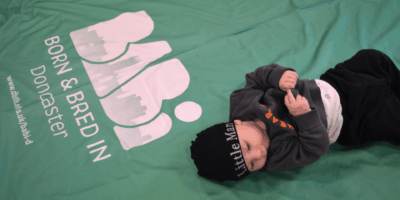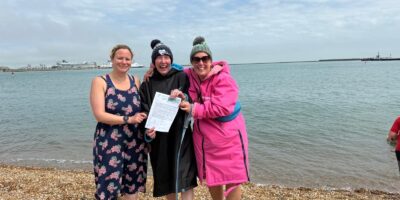 On Easter Monday, married couple Anita and Michael Cowburn were both working from home in their shared office, having just spoken to their granddaughter over video chat. After hanging up the call, Anita went into the kitchen to make lunch, whereupon she experienced a sudden onset of light-headedness. She unsuccessfully tried to alert her husband to the situation, before eventually losing control and hitting the hard-tiled floor.
On Easter Monday, married couple Anita and Michael Cowburn were both working from home in their shared office, having just spoken to their granddaughter over video chat. After hanging up the call, Anita went into the kitchen to make lunch, whereupon she experienced a sudden onset of light-headedness. She unsuccessfully tried to alert her husband to the situation, before eventually losing control and hitting the hard-tiled floor.
Ten minutes later Michael entered into the kitchen and discovered his wife in a state of semi-consciousness. Speaking about the incident, he said: ”Prior to this, there had been absolutely no signs that anything was wrong. Anita is a dedicated gymgoer, who takes regular power walks and has a very healthy diet, so there had been no precedent for anything like this.”
Having trained in first aid, Michael immediately began searching for any clear indication of what might have happened to Anita, like head or spinal injuries. In performing this physical check, he quickly noticed that her speech had become quite slurred and that she was unable to move the entire right-hand side of her body.
Suspecting that she may have had a stroke, Michael made the decision to call 999 and within 30 minutes an ambulance had arrived on the scene. From there, paramedics confirmed that all signs pointed to a stroke and took Anita to Doncaster Royal Infirmary (DRI) for emergency treatment. Michael was also informed that he could not accompany his wife to the hospital, as a precautionary measure to limit the spread of Coronavirus.
Michael was assured that healthcare professionals from DRI would keep in contact with him and update him as the situation unfolded. Michael continued: ”I have to say, they were true to their word, and by 7pm they had even organised a facetime call for us. Straight away I knew that I had made the right decision by ringing for an ambulance, as I could see that my wife had been given excellent care over on Ward 16. I would like to give my heartfelt thanks to everyone involved in Anita’s care, from those who spoke to me on the phone, right through to the ambulance staff, the doctors and the nurses. We owe them a debt of gratitude for the extremely professional manner in which they dealt with this unfortunate event.
”Of course, I initially felt quite a bit of trepidation about making that 999 call in the first place. After all, I didn’t want to put my wife at risk by unnecessarily taking her to hospital during a highly contagious outbreak. But I weighed up the alternatives and knew that it needed to be done. As a result, what could have otherwise been a life-threatening problem has now been resolved! So, if others find themselves in the same position, I would encourage them not to hesitate in contacting the emergency services. That’s what they’re here for”.
These sentiments were echoed by Dr Dinesh Chadha, stroke consultant at Doncaster and Bassetlaw Teaching Hospitals (DBTH), who said: ”Acute medical illnesses like heart failures and strokes should always be taken seriously and prioritised, even during a pandemic of this scale. Whilst it is completely understandable that everyone is trying to follow governmental guidance and practice social distancing, there are some conditions that require hospital attention. As such, we want everyone to be assured that we are taking all necessary steps to protect our patients from COVID-19. Please, if it is an emergency, call 999”.
Upon admission, Anita was taken directly to the CT scanner where she was met by the DRI stroke team. There, a brain scan revealed a large blood clot, which was treated with appropriate medication in a 23 minutes window. Thanks to Michael’s sensible judgement in calling 999, Anita has now recovered from the stroke and returned home, having fully regained control of her limbs and speech.
Since mid-March, the Trust, which operates DRI, Bassetlaw Hospital and Montagu Hospital, has seen 25% fewer patients than the month previous. Amounting to a gap of around 16,000 people, this drop comes despite the number of local residents seeking treatment for Covid-19 in the past few weeks.



